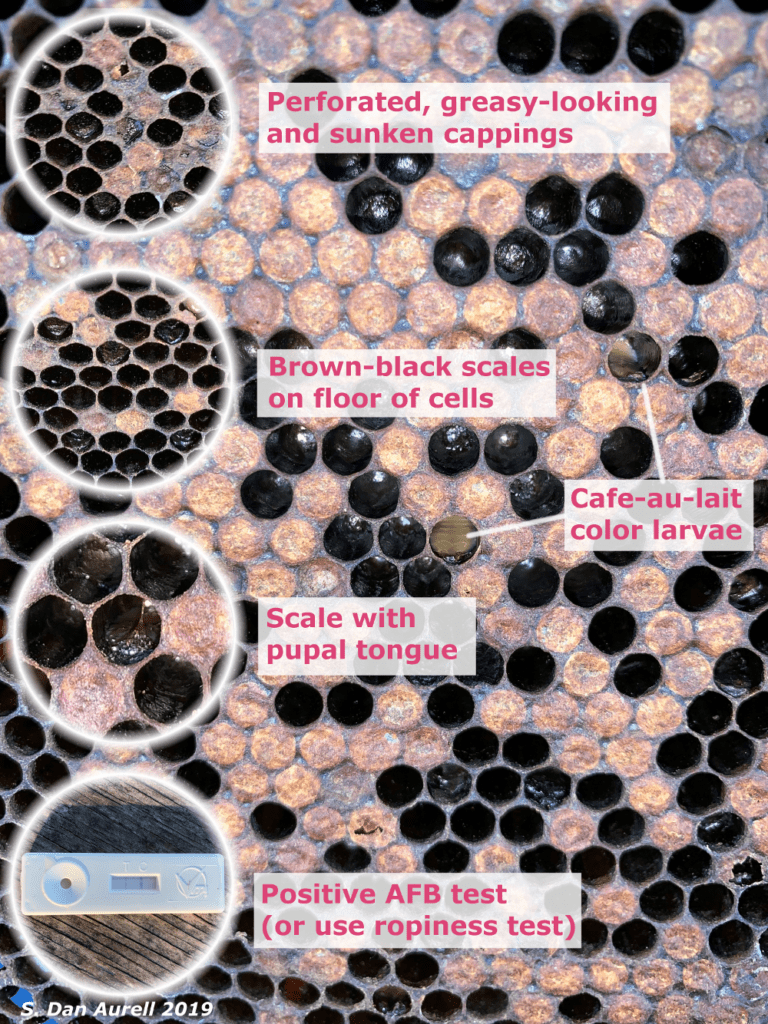As a Field Specialist on the BIP Tech Transfer Team, part of my job is to help commercial beekeepers to “nip problems in the bud”. Here is a recent event that illustrates the impact we have through the Tech Team Program.
While doing routine sampling for a beekeeper, I happened to find a colony that had every major sign of American Foulbrood. American Foulbrood, or AFB, is a bacterial disease of the brood, that used to be the major scourge of beekeeping. Inspection programs, careful follow-up by beekeepers, and antibiotics for treatment and prevention probably have all helped reduce its impact on bee health. However, AFB is a destructive and contagious disease that can still get out of hand these days.

The colony in question must have had the infection for some time because the characteristic dried-down larval remains were already present (these are known as “scale”). However, the brood nest had not yet collapsed into the extremely contagious mess that is a common endpoint of the disease. While the colony was already weakened, it still had enough bees to defend itself, and there were no signs that other colonies had started to rob it of its honey, which is a common way for AFB to spread through a bee yard. Soon after the discovery, the beekeeper decided to burn this colony to prevent the disease from spreading to others.
Besides diagnosing the disease, I sent a sample of diseased materials to the USDA lab in Beltsville, where they performed antibiotic resistance testing. They determined that the bacterial strain was resistant to terramycin, but susceptible to tylosin. This result highlighted that burning is the best practice for colonies that show symptoms of AFB. Also, it indicated that treating the other colonies in the yard with tylosin could be an appropriate strategy to limit the spread of AFB. After making sure the other colonies in the yard do not show any signs of disease, tylosin could be used to prevent them from developing disease from possible contact with the sick colony. To access either tylosin or terramycin, a beekeeper needs to go through a veterinarian.
The USDA accepts AFB samples free of charge from US beekeepers, and we are proud to connect beekeepers to this and other diagnostic services. For information about submitting Foulbrood samples, see this page: https://www.ars.usda.gov/northeast-area/beltsville-md-barc/beltsville-agricultural-research-center/bee-research-laboratory/docs/bee-disease-diagnosis-service/ Samuel Abban of the USDA took a quick look at their numbers, and reports that last year about 16% of AFB samples that they tested were terramycin-resistant, and none were tylosin-resistant.
Through these kinds of observations, diagnostics and laboratory tests, the Tech Team helps commercial beekeepers make good management decisions based on real-time sampling results. Please consider supporting our efforts that help American beekeepers with a donation by clicking here.
